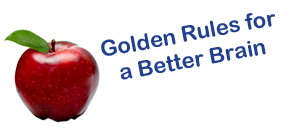Restlessness
Difficulty sitting still, fidgety, on the go the whole time, driven.
Impulsiveness
Easily distracted, interrupts or intrudes on others, unpredictable.
Inattentive
Fails to follow instruction, or complete work, disorganised, lacks focus.
Poor Coordination
Clumsy, writing at times large spidery or illegible, mixed left - right dominance.
|
|
Poor Mental Processing
Letter reversals, inconsistent spelling or maths, day dreams.
Antisocial Behaviour
Argumentative, aggressive, destructive, defiant, devious, swears, steals and lies.
Emotional Instability
Extremes of feelings, easily frustrated, overreacts to touch, pain, sound, weepy.
Health issues
Prone to infections, glue ear, eye puffiness or dark circles, allergies, asthma, eczema, hives, headaches, muscle or stomach pains, excessive thirst and perspiration. |







